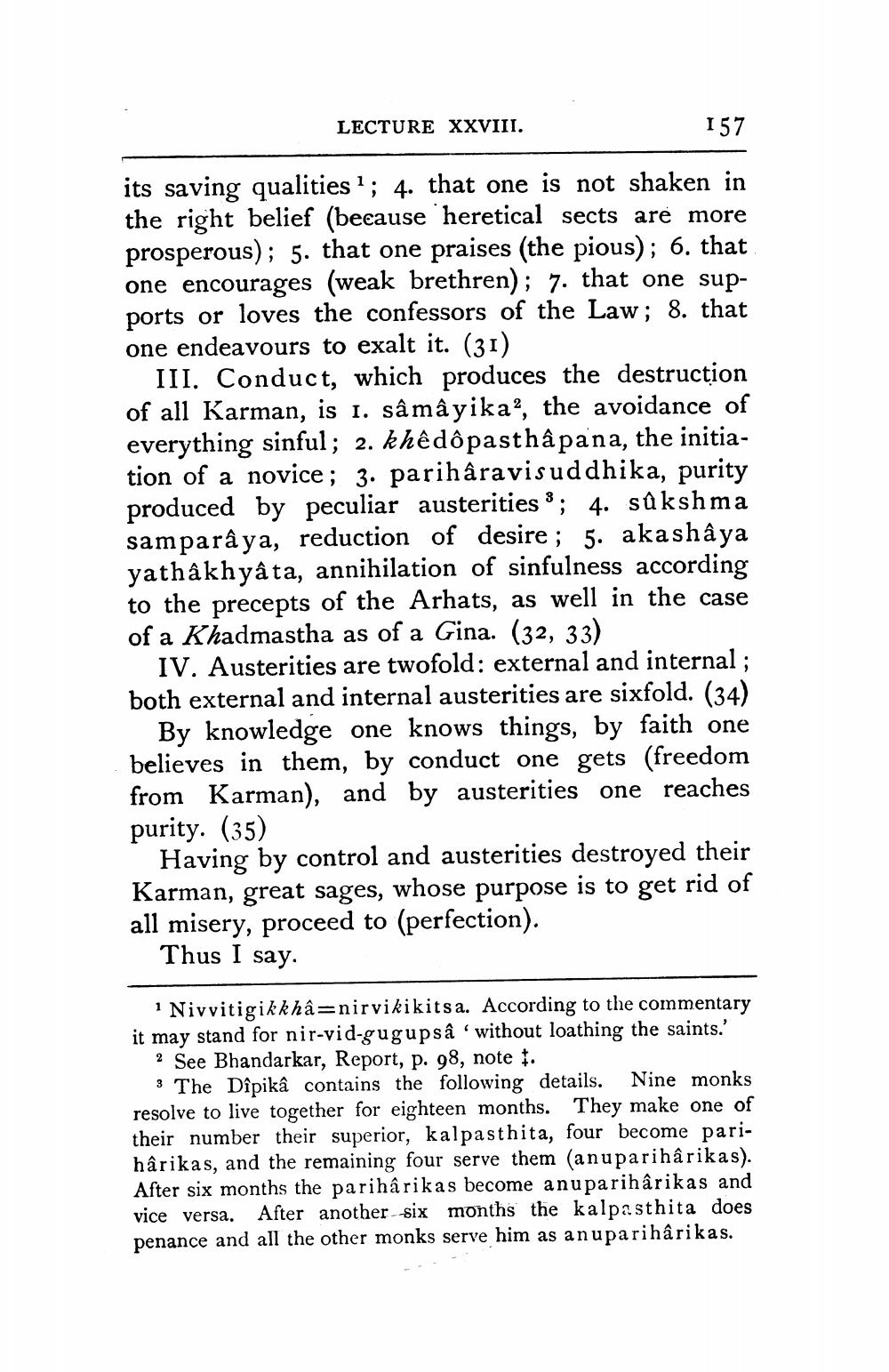________________
LECTURE XXVIII.
157
its saving qualities 1; 4. that one is not shaken in the right belief (because heretical sects are more prosperous); 5. that one praises (the pious); 6. that one encourages (weak brethren); 7. that one supports or loves the confessors of the Law; 8. that one endeavours to exalt it. (31)
III. Conduct, which produces the destruction of all Karman, is 1. sâmâyika?, the avoidance of everything sinful; 2. khêdôpasthâpana, the initiation of a novice; 3. pariharavisuddhika, purity produced by peculiar austerities 3 ; 4. sûkshma samparâya, reduction of desire; 5. akashaya yathâkhyâta, annihilation of sinfulness according to the precepts of the Arhats, as well in the case of a Khadmastha as of a Gina. (32, 33)
IV. Austerities are twofold: external and internal ; both external and internal austerities are sixfold. (34)
By knowledge one knows things, by faith one believes in them, by conduct one gets (freedom from Karman), and by austerities one reaches purity. (35)
Having by control and austerities destroyed their Karman, great sages, whose purpose is to get rid of all misery, proceed to (perfection).
Thus I say.
1 Nivvitigikkhâ=nirvikikitsa. According to the commentary it may stand for nir-vid-gugupsâ 'without loathing the saints.'
? See Bhandarkar, Report, p. 98, note 1.
3 The Dîpikâ contains the following details. Nine monks resolve to live together for eighteen months. They make one of their number their superior, kalpasthita, four become parihârikas, and the remaining four serve them (anuparihârikas). After six months the pariharikas become anupariharikas and vice versa. After another six months the kalpasthita does penance and all the other monks serve him as an upariharikas.




